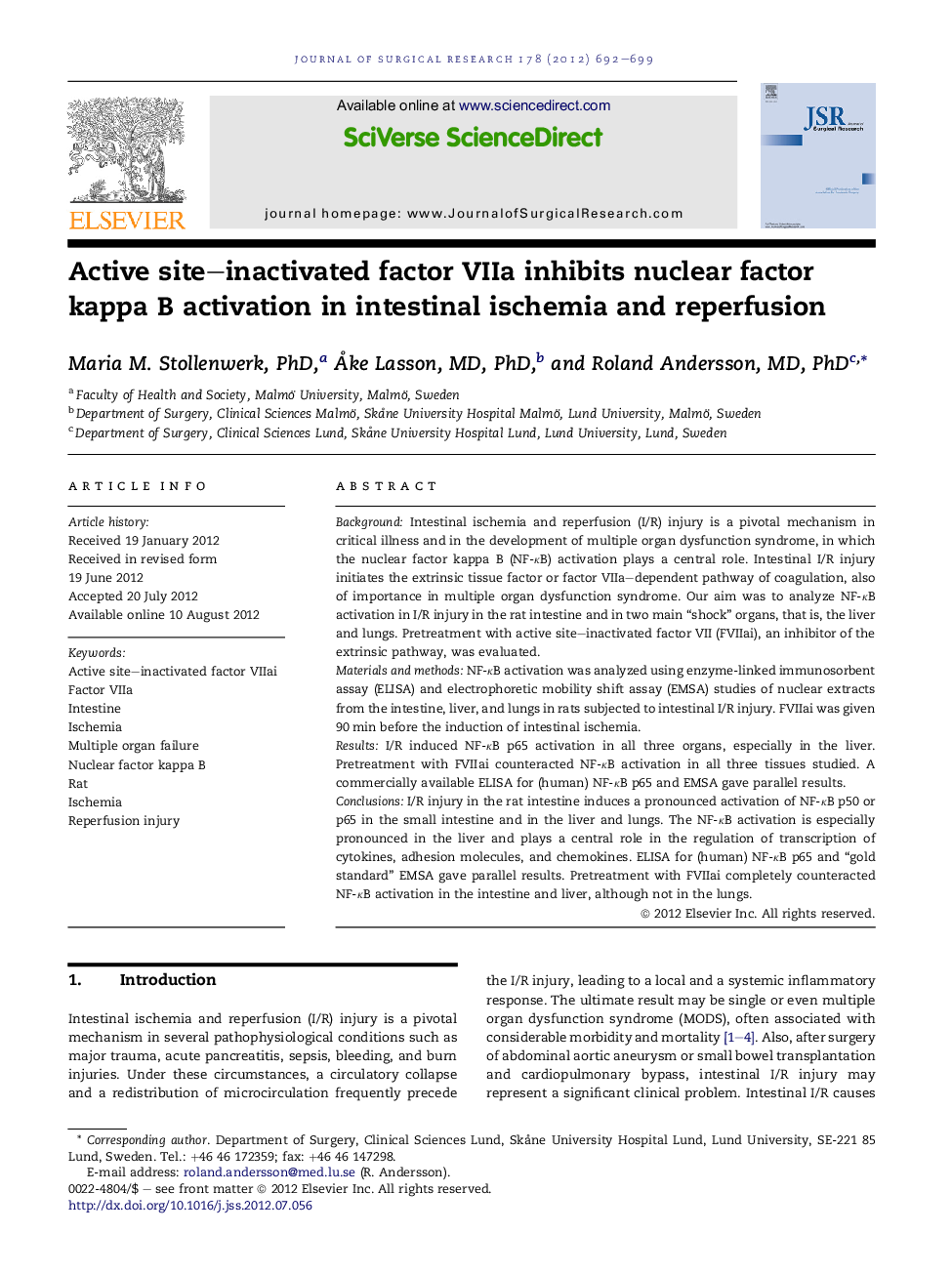| کد مقاله | کد نشریه | سال انتشار | مقاله انگلیسی | نسخه تمام متن |
|---|---|---|---|---|
| 6254501 | 1288445 | 2012 | 8 صفحه PDF | دانلود رایگان |

BackgroundIntestinal ischemia and reperfusion (I/R) injury is a pivotal mechanism in critical illness and in the development of multiple organ dysfunction syndrome, in which the nuclear factor kappa B (NF-κB) activation plays a central role. Intestinal I/R injury initiates the extrinsic tissue factor or factor VIIa-dependent pathway of coagulation, also of importance in multiple organ dysfunction syndrome. Our aim was to analyze NF-κB activation in I/R injury in the rat intestine and in two main “shock” organs, that is, the liver and lungs. Pretreatment with active site-inactivated factor VII (FVIIai), an inhibitor of the extrinsic pathway, was evaluated.Materials and methodsNF-κB activation was analyzed using enzyme-linked immunosorbent assay (ELISA) and electrophoretic mobility shift assay (EMSA) studies of nuclear extracts from the intestine, liver, and lungs in rats subjected to intestinal I/R injury. FVIIai was given 90 min before the induction of intestinal ischemia.ResultsI/R induced NF-κB p65 activation in all three organs, especially in the liver. Pretreatment with FVIIai counteracted NF-κB activation in all three tissues studied. A commercially available ELISA for (human) NF-κB p65 and EMSA gave parallel results.ConclusionsI/R injury in the rat intestine induces a pronounced activation of NF-κB p50 or p65 in the small intestine and in the liver and lungs. The NF-κB activation is especially pronounced in the liver and plays a central role in the regulation of transcription of cytokines, adhesion molecules, and chemokines. ELISA for (human) NF-κB p65 and “gold standard” EMSA gave parallel results. Pretreatment with FVIIai completely counteracted NF-κB activation in the intestine and liver, although not in the lungs.
Journal: Journal of Surgical Research - Volume 178, Issue 2, December 2012, Pages 692-699